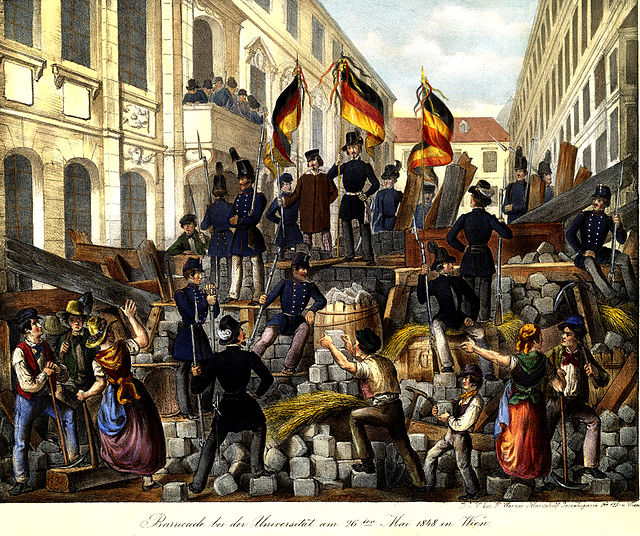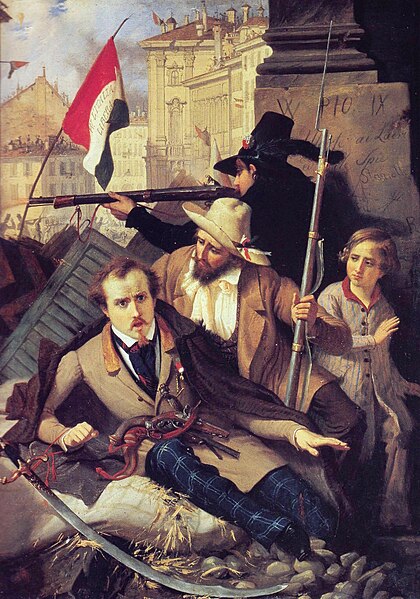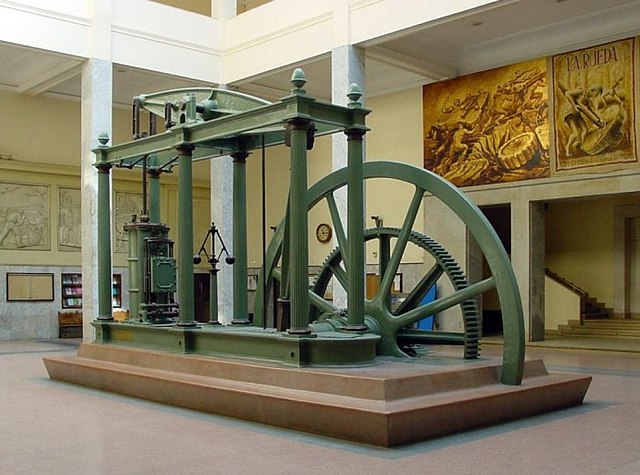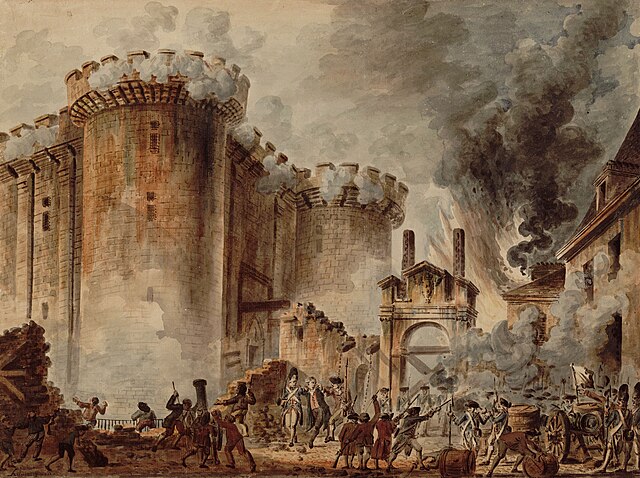The revolutions of 1848, known in some countries as the springtime of the peoples or the springtime of nations, were a series of revolutions throughout Europe over the course of more than one year, from 1848 to 1849. It remains the most widespread revolutionary wave in European history to date.
Barricade on the rue Soufflot, an 1848 painting by Horace Vernet. The Panthéon is shown in the background.
The June Uprising of 1848 in Prague injected a strong political element into Czech National Revival.
The revolutionary barricades in Vienna in May 1848
Episode from the Five Days of Milan, painting by Baldassare Verazzi
In political science, a revolution is a rapid, fundamental transformation of a society's state, class, ethnic or religious structures. A revolution involves the attempted change in political regimes, substantial mass mobilization, and efforts to force change through non-institutionalized means.
A Watt steam engine in Madrid. The development of the steam engine propelled the Industrial Revolution in Britain and the world. The steam engine was created to pump water from coal mines, enabling them to be deepened beyond groundwater levels.
The storming of the Bastille, 14 July 1789 during the French Revolution.
Vladimir Lenin, leader of the Bolshevik Revolution of 1917.
Sun Yat-sen, leader of the Chinese Xinhai Revolution in 1911.








